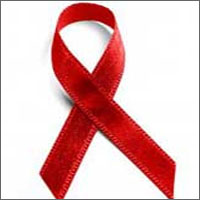Europe pledges to take lead on HIV/AIDS
Representatives of the governments of both EU Member States and neighbouring countries, as well as the European Commission, have pledged to provide political leadership in the fight against HIV/AIDS at national, European and international levels, in a declaration put together at the EU conference on HIV/AIDS held in the German city of Bremen. 'At the Bremen Conference, we succeeded in agreeing on the fact that the fight against HIV/AIDS can only be won with strong political leadership,' commented German Health Minister Ulla Schmidt. 'This is a topic which must be tackled at the highest possible political level.' German Chancellor Angela Merkel said she believed that Bremen would become 'a synonym for a new, European HIV/AIDS offensive'. The Bremen Declaration acknowledges that, 'HIV/AIDS, more than a quarter of a century into the epidemic, and in spite of manifold efforts at the national, international and global level is still outpacing our efforts and shows a high incidence rate among men and an increase in women in many regions of the world'. Research features strongly in the declaration. 'We acknowledge that at the same time the search for better tools for health promotion, prevention, access to testing, diagnosis and treatment [...] must be sustained,' the signatories declare. 'More research is also critical on microbicides, vaccines and pre-exposure prophylaxis, as well as on the most effective ways to achieve behavioural change.' In her keynote address to the conference, Angela Merkel highlighted the vital importance of developing treatments for the disease and making these available to patients. 'One thing is clear. Without the prospect of treatment in the case of a positive result we can hardly increase the readiness of people to get themselves tested,' she said. The declaration calls on the European Commission to include public health issues regarding HIV/AIDS prevention, treatment, care and support in the Seventh Framework Programme for research (FP7), and invites the pharmaceutical industry to enter into partnerships with the public sector to support research and development (R&D) and technology transfer. At the meeting, UNAIDS Executive Director Dr Peter Piot welcomed European action on HIV/AIDS research so far. 'From the very early days, Europe has played a leading role in advancing scientific research. Individual governments and the European Commission fund research and development of new products to prevent and treat HIV,' he said. 'The Commission is currently engaging in some dynamic new partnerships with a range of private sector entities that are working to develop microbicides and vaccines.' In her speech, Chancellor Merkel promised to take the results of the conference to the June Council meeting of the European Heads of State and Government.
Countries
Germany



